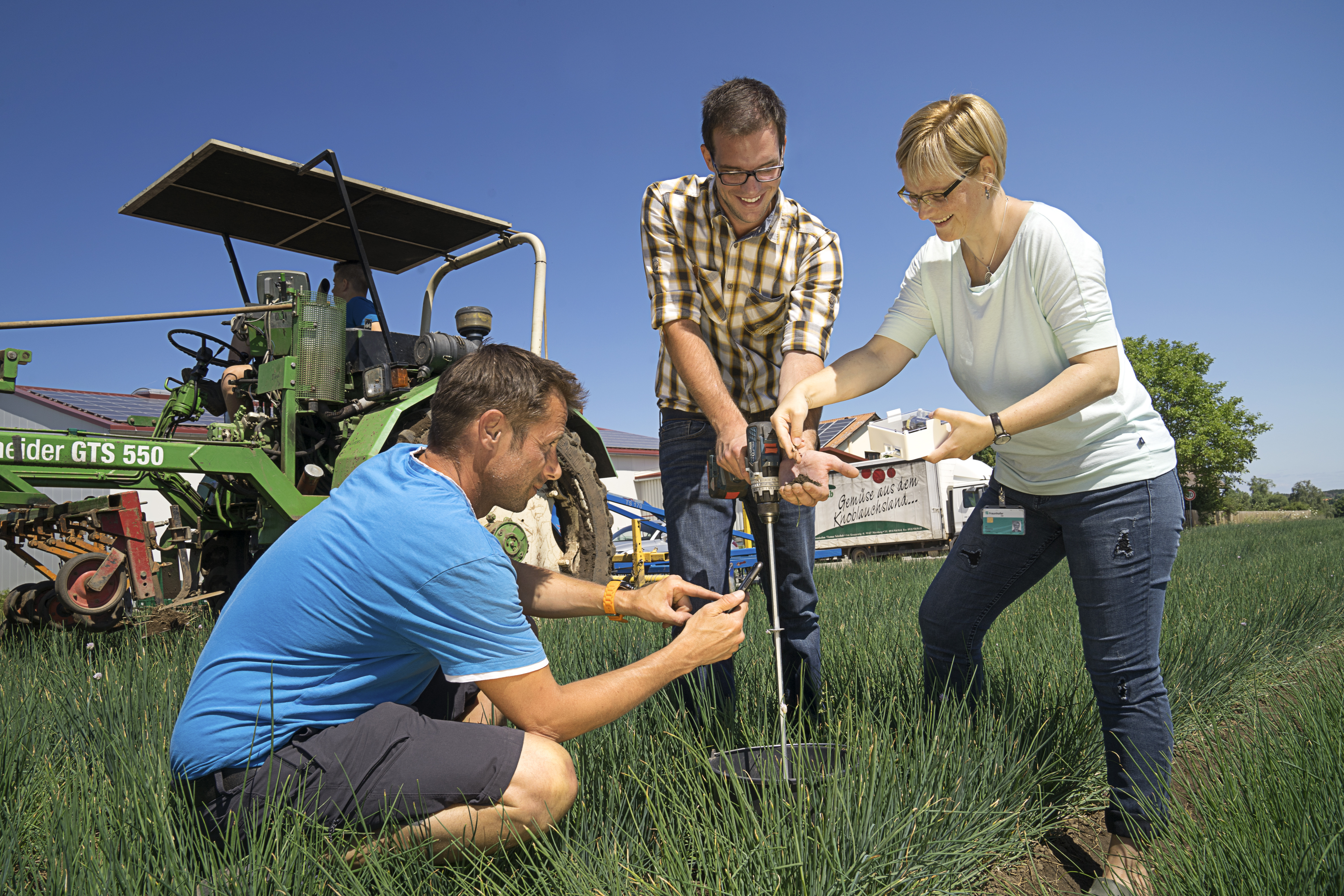Final report of the FutureIOT joint research project presents intelligent solutions for urban and agricultural connectivity
What all of us want is good air to breathe, healthy animals out to pasture and fertile arable land. How can the Internet of Things (IoT) help us solve such challenges, especially when climate change is making them all the more urgent? Within the project, the FutureIOT center of excellence, which is funded by the Bavarian Research Foundation, developed solutions for animal health, parking space management, air quality measurement and connected sensor technology for fields.


FutureIOT is a cooperation of 29 companies and authorities as well as 11 partners from the scientific sector in Bavaria. The joint research project’s primary goal was to develop comprehensive IoT solutions for everything from the sensor to the open IoT platform, including application-specific user interfaces for practical requirements in the topic areas “City.digital” and “Agriculture.digital.” By pooling their expertise, the partners succeeded in leveraging existing potential using intelligent, connected solutions designed with the future visions of smart agriculture or smart cities in mind.
“The Internet of Things makes it possible to link things in the real world with the virtual world of the Internet,” explains Prof. Albert Heuberger, head of the consortium and executive director of the Fraunhofer Institute for Integrated Circuits IIS. “The data this provides gives us a new and better way to tackle problems in both urban and rural areas, such as the use of parking space or the fertilization of fields.” During the research period, the project focused on a spectrum of issues ranging from ecology and economics to technology and health policy.
Fraunhofer IIS played a major part in this by incorporating its mioty technology, which was awarded the Joseph von Fraunhofer Prize in 2021. Designed for massive IoT applications in the Industrial Internet of Things (IIoT) or in the smart city sector, mioty wireless transmission technology reliably and robustly transmits many thousands of data packets at the same time and over long distances. The research work focused on testing and researching the technology’s transmission power and coverage, establishing a mioty ecosystem and implementing it in the partner companies’ products.
Good air and optimized use of parking spaces
The “City.digital” topic area was devoted to the issues of parking and environmental pollution in Bavarian city centers. The project developed an overarching basic technology that enables broad usability for different fields of application. Sensors mounted on buses and bus stops operated by the city of Bamberg’s public utilities continuously measure the level of pollutants in the air. Over the long term, this intelligent environmental sensor technology should lead to a reduction in the high level of exhaust gas pollution in cities. In addition, two downtown parking lots were equipped with special sensors that provided data on parking space occupancy. Future mobility scenarios can be developed and operated reliably and cost-effectively with these IoT services.
Healthy grazing animals and high-yielding arable land
In the “Agriculture.digital” topic area, the focus was on what is known as digital farming. There was particular potential for optimization in the area of plant growth and fertilization. Combining a sensor-based soil analysis, which provided data on soil moisture and temperature, with a mobile laboratory for determining the nitrogen content in the soil, the project was able to supply fertilizers in a spatially resolved and precise way, thus reducing environmental pollution and easing the agricultural workload.
Refinements to the cattle tracking project were aimed at animal monitoring and health. Accelerometers attached to a collar provided information about the animals’ movement patterns around the stable and pasture as well as their individual behavior. Combining this data with environmental parameters on weather and data on pasture growth enabled the project to generate models for key behaviors and animal welfare. Farmers can use the results obtained from this connected data specifically in health monitoring and in animal and barn management.
Platform technology for a wide range of applications
The newly developed platforms can collect and link data from thousands of sensors, enabling processes and conditions to be monitored, controlled and managed. Since the platform technology can be used independently of sensor type, it supports a breadth of possible applications. Munich Airport is currently testing FutureIOT technologies for monitoring infrastructure during ongoing operations, while other project partners are developing products and exploiting the new findings.
Thanks to close collaboration, the consortium has delivered on its stated aim of achieving reliable cross-industry solutions for the future Internet of Things. The joint research project is to continue in the form of a network so it can implement further pioneering solutions in research, teaching and industry.
You can find more information (in German only) on the project page: https://www.futureiot.de/
For a full list of project partners, visit https://www.futureiot.de/forschungsverbund/